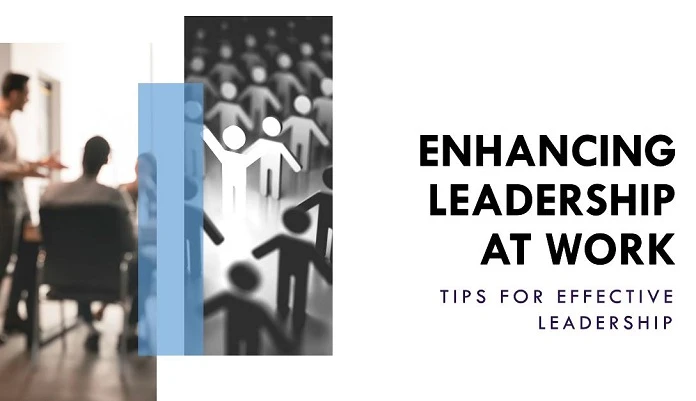Leaders have a great impact on your organization. They are the reason behind your company’s success and failure. The role of a good leader is comparatively more important in a high-stress work environment. In such scenarios, the effectiveness of your leaders matters because they can help your workforce maintain momentum. However, if leaders aren’t able to perform their core responsibilities efficiently, their workforce’s productivity and efficiency will drop.
According to stats, only 15% of leaders are prepared to address and prevent employee burnout. These stats show that most leaders aren’t able to address the common problems that employees usually face. If such problems persist, it can lead to poor work quality, and you may notice an increase in your turnover rate. Therefore, it’s important to have leaders who can inspire, motivate their teams, and enable them to yield optimal results.
Let’s dig deeper into the topic and find out how to enhance leadership effectiveness in the workplace.
Top 5 Ways to Improve Leadership Effectiveness at the Workplace
Leaders are responsible for managing employees’ performance, identifying skills, providing feedback, and addressing employees’ concerns. If leaders aren’t effective in these crucial areas, workforce morale might drop. According to a Gallup study, 44% of employee engagement relies on leaders/managers. This shows that if leaders aren’t efficient enough, they will have a disengaged workforce.
Here are the top 5 ways you can use to improve leadership effectiveness at your workplace for better performance.
1. Evaluate Your Leader’s Behavior
There are certain characteristics of a good leader that apply to all businesses regardless of industry. If the leaders don’t have such characteristics, your workforce may be producing poor results. This is because the workforce greatly relies on management to assist them with their work-related challenges.
Therefore, to provide the workforce with the support they need, a leader must have specific characteristics. You can evaluate this by their behavior of listening, caring, sharing, speaking, inspiring, etc. If they don’t show such traits, then it may be time to upskill their capabilities for better performance. Considering this, businesses opt for training and development courses to enhance their leader’s capabilities for improved effectiveness.
2. Encourage Collaboration
According to a report, 75% of employees regard teamwork and collaboration as important factors. Collaborative environments allow the workforce to share their ideas and solve problems together. That’s where good leaders come into play and form a collaborative environment to help their workforce.
A leader can improve his effectiveness by encouraging collaboration in many ways. This includes involving the teams in crucial decisions that can affect them and gathering their feedback before acting on the decision. It can also be improved by seeking employees’ opinions when dealing with a certain problem.
3. Build Trust
Leaders’ effectiveness on the floor is improved when their employees trust them. They trust managers because they think of them as someone reliable, competent, and honest. There are various ways a leader can instill trust in his leadership, including:
- Creating credibility by fulfilling the promises he made to the employees.
- Setting the workforce for success by providing them with the support and resources they need to grow.
- Making fair decisions, specifically when it comes to promotion decisions. A good leader must be able to carefully evaluate an employee’s performance.
Through this, the employees will build a positive impression of management and thus build trust.
4. Focus on Employee Recognition
In most organizations, employees work tirelessly and dedicate themselves to their work for weeks, but management fails to recognize this. As a result, employees’ efforts aren’t valued by management, and therefore, their work efficiency drops. A leader can improve his effectiveness by recognizing employees’ efforts and rewarding them accordingly.
Leaders can focus on employee recognition by setting goals for each employee. If an employee achieves the goal efficiently, the leaders can acknowledge it and appreciate their efforts. This also creates a sense of healthy competition, which encourages the workforce to work with enhanced efficiency.
5. Fill the Skill Gaps
Depending on the nature of your business, a leader must possess certain abilities to improve his effectiveness. For example, in high-stress work environments, leaders must have good communication skills. Through impactful communication, employees will be able to maintain their momentum when they feel inspired by leaders.
Your leaders must also have the skills to provide constructive feedback to the employees. Constructive feedback leaves a positive impression on employees and encourages them to improve and enhance their performance. However, all this is only possible when your leader has the required skills. To ensure this, you can go for leadership training courses in Dubai that develop all the essential skills your leaders require.
Are You Looking to Improve Your Leadership Effectiveness?
Effective leadership is critical for any organization’s success, and leaders can perform better when they have all the essential skills. To improve the effectiveness of your leaders, consider enrolling them in a structured training program. Corporate training professionals can provide you with the necessary resources to unleash your leader’s true potential. Contact them now to sign up for such a program.
Recommended:
Top 9 Challenges Faced By Healthcare Leaders
How Bad Leadership Affects The Team


